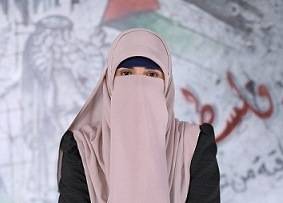Even under the genocidal eliminationist Israeli assault on the Gaza Strip, the Palestinian people nevertheless uphold their will to strive, to fight, to survive and maintain righteousness on their own land. Hundreds of individual and group initiatives have emerged and are flourishing from within the crucible of Gaza’s destruction and displacement.
Mohammed Alkhudari, a teacher, gathers dozens of students to practice reading Arabic in the school where he is sheltering. “Despite the poor equipment and lack of materials that we have here to teach our students, I feel it’s my duty and responsibility as a teacher to teach our children after months without schools,” says Alkhudari, who was displaced from his home in Shuja’iyya neighbourhood in Gaza City and forced to evacuate after Israeli warplanes bombed his five-story residential building on 7 November, 2023.
“I miraculously survived after spending several hours under the rubble of my destroyed home,” he recalled to MEMO. “It was a horrifying night; hundreds were massacred, among them my uncle and his entire family.” After his home was destroyed, Alkhudari and his surviving family members moved to the south, seeking refuge in Deir Al-Balah. “I teach students how to read by studying stories and poems because this decreases their anxiety, fear and stress.”Israeli airstrikes have directly or indirectly destroyed more than 350 schools since the commencement of Israel’s murderous onslaught, and the remaining schools have been turned into shelters for displaced Palestinians who face ongoing targeting as the Israeli rampage continues. The indiscriminate Israeli airstrikes have murdered at least 4,400 students, 231 teachers and 94 professors so far, according to the Ministry of Education.
Living in a makeshift shelter in Rafah, Dr Mahmoud Mohammed Saleh has turned his tent into a clinic to treat refugee camp patients. “After losing my house in an Israeli airstrike, I moved with my family to Rafah. Once I reached Rafah and erected the tent for my family, I contacted the Ministry of Health to aid me with some essential equipment and medicine to help the displaced people,” Dr Saleh shares. “I could not surrender my mission and let my people suffer without medical care, especially in the face of the spread of diseases due to the lack of hygiene and health services among the displaced people.” According to Dr Saleh: “Scabies and hepatitis are among the diseases that are spreading unprecedentedly among the displaced population due to the contamination of water, if available, and the lack of personal hygiene due to the lack of resources among most of the families.” He started by treating patients in his family tent, and over time, he and his colleagues erected a neighbouring tent equipped as a central medical point to serve around 500 displaced families, where conditions are diagnosed and some treatments are available to patients for free.
Dr Saleh feels some happiness when he treats people. He explains that he feels relieved when he helps patients and alleviates their pain: “My work is a message of peace and love, and through it, I seek to spread hope among my displaced people.”
Seventy-five per cent of the sector’s hospitals are out of service as a result of the Israeli occupation army’s deadly assaults on Gaza’s healthcare facilities, which were already facing critical shortages of medications and supplies under the Israeli-imposed blockade and siege prior to the start of Israel’s bombardment in October.
The ongoing Israeli onslaught on the Gaza Strip has spawned cascades of shortages of the most basic necessities, including nappies. The immense need instigated a group of women to build a small workshop to sew nappies. While shearing pieces of white cloth to be stitched together with cotton pads, Maysaa Alqutati, the manager of the project, told MEMO: “We invented the process of making these simple nappies by recycling protective medical clothing from the Coronavirus pandemic and adding fabric and medical cotton to help mothers in light of the diaper shortage at the local markets.”
“Many essential necessities have been hobbled by Israeli restrictions and the relentless bombardment, unleashing a humanitarian catastrophe of unimaginable scale. The shortages have pushed mothers to resort to easily soiled cloth nappies; however, cleaning them is difficult due to water scarcity. What mothers used instead of nappies led to health and skin problems for their children, so this spurred us to come up with the idea of making the nappies with whatever suitable materials we can find.”
According to Alqutatit, there is a great demand for their local-made nappies, which have proven their quality as a viable emergency alternative at reasonable prices to ready-made nappies, but they cannot meet the overall need of the local market due to the small capacity of the operation, the lack of raw materials, the power shortages and the need to use a small generator to operate the sewing machines. The small sewing workshop employs 15 workers, most of whom are women displaced from Gaza City and the northern Gaza Strip. Around 1.4 million displaced Palestinians are crammed into Rafah, in streets, schools and formerly empty lands, while newly created tent camps fill the city, which continues to face non-stop Israeli air, sea and ground bombardment.
These survival efforts are not isolated occurrences across the Gaza Strip. Hundreds of projects and initiatives have emerged in resistance to Israel’s genocide as a result of the Palestinian people’s relentless, steadfast drive for freedom and a whole and dignified life.
The views expressed in this article belong to the author and do not necessarily reflect the editorial policy of Middle East Monitor.

![A group of Palestinian women build a small workshop to sew nappies in Gaza [Wafa Aludaini]](https://i0.wp.com/www.middleeastmonitor.com/wp-content/uploads/2024/02/IMG-20240222-WA0008-e1708779361730.jpg?fit=920%2C613&ssl=1)

![IMG-20240222-WA0010 A group of Palestinian women build a small workshop to sew nappies in Gaza [Wafa Aludaini]](https://i0.wp.com/www.middleeastmonitor.com/wp-content/uploads/2024/02/IMG-20240222-WA0010.jpg?w=494&h=278&ssl=1)
![IMG-20240222-WA0008 A group of Palestinian women build a small workshop to sew nappies in Gaza [Wafa Aludaini]](https://i0.wp.com/www.middleeastmonitor.com/wp-content/uploads/2024/02/IMG-20240222-WA0008-e1708779361730.jpg?w=418&h=278&ssl=1)
![IMG-20240222-WA0007 A group of Palestinian women build a small workshop to sew nappies in Gaza [Wafa Aludaini]](https://i0.wp.com/www.middleeastmonitor.com/wp-content/uploads/2024/02/IMG-20240222-WA0007.jpg?w=916&h=516&ssl=1)






